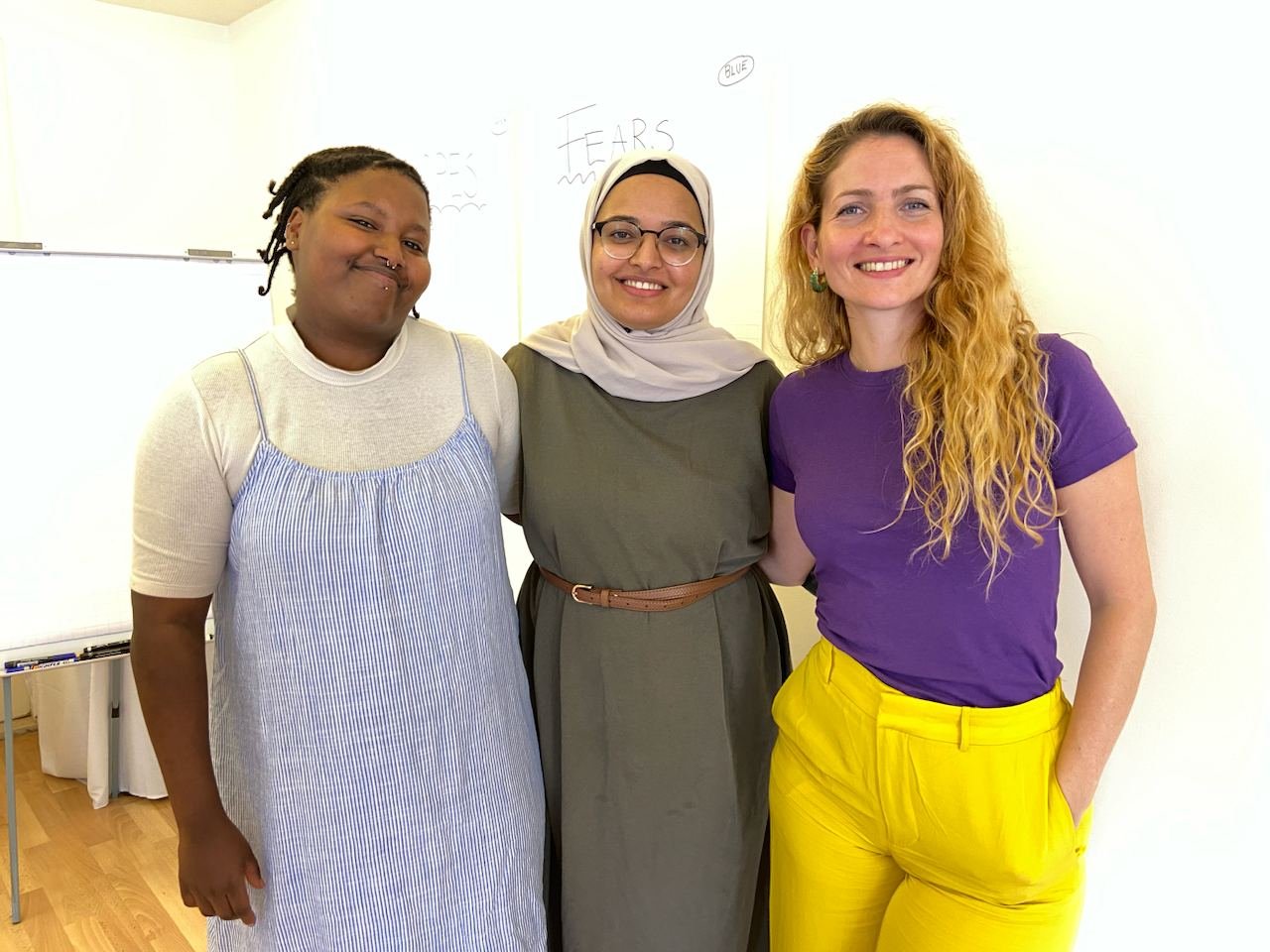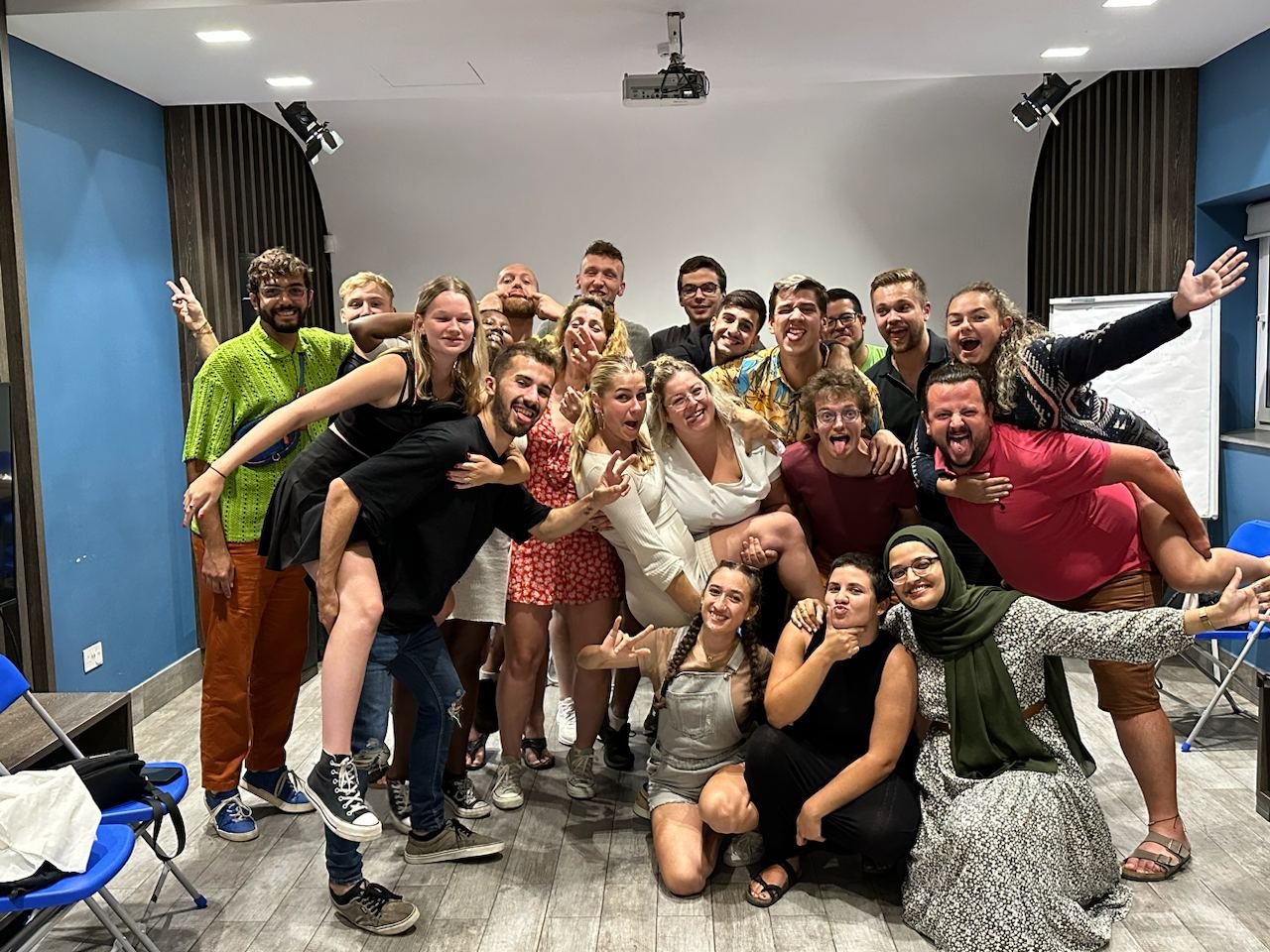Introduction
In the year 2022, the European Union of the Deaf Youth (EUDY) embarked on an impactful Erasmus+ funded project dedicated to enhancing the safeguarding of Deaf young individuals participating in physical activities. This initiative sought to develop guidelines and tools specifically tailored for international youth exchanges, seminars, training and meetings where attendees communicate in sign language. The objective was to foster respect among organisations and their participants, creating inclusive and culturally sensitive programs that ensure the involvement and well-being of all.
While the initial project primarily focused on inclusive physical activities, it became evident that a critical gap existed concerning online activities. The prevalence of hate speech on the internet, affecting Deaf young people significantly, prompted the realisation that existing guidelines were not suitable for addressing cyberbullying. The multifaceted nature of online activities, coupled with the lack of specific data on bullying within the Deaf community, led to the recommendation of a survey to map the profiles of both victims and perpetrators.
A New Project: Deaf Youth against Cyberbullying: Action Kit and Manifesto
The project “Deaf Youth against Cyberbullying: Action Kit and Manifesto,” addressing the digital age’s rising concern of cyberbullying, supported by the Erasmus+ Programme of the European Union, was facilitated by Katia Pahud from Switzerland, Sofiya Kalinova from Ireland, and Lubna Mehdi from Norway. This project is led by the EUDY and in collaboration with the Deaf People’s Association of Malta (DPAM), with participants from Spain, Romania, Norway, Netherlands, Malta, Latvia, Iceland, Czech Republic, and Belgium. This initiative aims to combat the surge in cyberbullying exacerbated by the COVID-19 crisis.
The project seeks to collect data on cyberbullying, develop tools for Deaf youth workers, create materials for supporting affected individuals, and share a manifesto for online awareness. Deaf youth workers from partner organisations and national representative groups, along with individuals aged 0-35, are the primary focus. The project will especially address those aged 15-35, at a higher risk of cyberbullying.
The project focuses on a survey tailored for Deaf individuals aged 15-35, recognising their vulnerability to cyberbullying. Through collaborative survey creation and active participation, the project aims to address gaps in information and develop effective tools. This holistic approach involves both youth workers and participants, contributing to the overarching goal of creating safe spaces, empowering youth workers, and building a toolkit for positive impact within the Deaf community.
Project Objectives
- Data Collection: Gathering quantitative and qualitative data on cyberbullying among Deaf young people to understand high-risk activities and affected profiles.
- Tool Development: Creating specialised tools and resources to help Deaf youth workers identify and address cyberbullying effectively.
- Capacity Building: Developing materials to equip Deaf youth workers with strategies to support victims of cyberbullying.
- Manifesto Development: Crafting a manifesto in sign language to raise awareness about cyberbullying across online platforms.
Project Activities and Meetings
Meetings: The project “Deaf Youth against Cyberbullying: Action Kit and Manifesto” consisted of two seminars held at key locations in Europe:
1st Seminar: Sliema, Malta (26th September – 1st October 2023)
During this initial seminar, the project focused on building foundational knowledge and frameworks to combat cyberbullying among Deaf young people. Key sessions included:
– Exploring the concept of cyberbullying and sharing insights from partner organisations.
– Reviewing national policies and existing tools for addressing cyberbullying.
– Discussing EUDY’s safeguarding guidelines at the European level.
– Workshopping on survey construction to gather relevant data.
– Establishing measurable outcomes and planning the project’s implementation timeline.
2nd Seminar: Brussels, Belgium (14th – 18th February 2024)
The second seminar marked the consolidation and practical application phase of the project:
– Analysing and discussing the findings from the cyberbullying survey conducted.
– Identifying essential tools and resources necessary for effective intervention.
– Developing a comprehensive toolkit tailored to the needs of Deaf youth workers.
– Setting up the toolkit for deployment and integration into partner organisations and EUDY’s Member Organisations.
– Planning the next steps for implementing the toolkit across various organisational contexts.
– Conducting an evaluation to assess the project’s impact and outcomes.
These meetings served as pivotal moments for knowledge exchange, strategy development, and collaborative efforts aimed at creating a safer online environment for Deaf young people across Europe. Through these sessions, the project advanced its mission to empower youth workers and foster awareness about cyberbullying within the Deaf community.
Project Outputs
The project “Deaf Youth against Cyberbullying: Action Kit and Manifesto” has yielded valuable resources and materials tailored for the Deaf youth community.
Survey Results: One of the most significant outcomes was the insights gathered from our comprehensive survey. Please read the Preliminary Report Survey here.
Awareness Campaigns: Participants of the project have visually presented the survey findings through informative posters. Explore the results here.
Manifesto on Recognising Cyberbullying: A cornerstone of our project’s output is the Manifesto on Recognising Cyberbullying, available for review here. – Click HERE for IS translation.
Videos for Group Discussion and Reflection: To facilitate dialogue and reflection, project participants have created videos focusing on various aspects of cyberbullying. Watch the videos [LINK HERE].
Letter to UN Submission: In collaboration with The World Federation of the Deaf and DeafKidz International, facilitators Katia Pahud, Sofiya Kalinova, and Lubna Mehdi have submitted a letter to the UN addressing cyberbullying. You can read the submission here.
These outputs aim to empower and support Deaf youth workers and organisations in combating cyberbullying and promoting a safer online environment.
Acknowledgements
This project would not have been possible without the dedication and expertise of our facilitators, Katia Pahud, Sofiya Kalinova, and Lubna Mehdi, as well as the collaboration of our project partners from across Europe. We extend our heartfelt thanks for their invaluable contributions and cooperation.


We also express our gratitude to the Erasmus+ Programme of the European Union for their generous support, which made this initiative a reality.
Funded by the European Union. Views and opinions expressed are however those of the author(s) only and do not necessarily reflect those of the European Union or the European Education and Culture Executive Agency (EACEA). Neither the European Union nor the granting authority can be held responsible for them.
